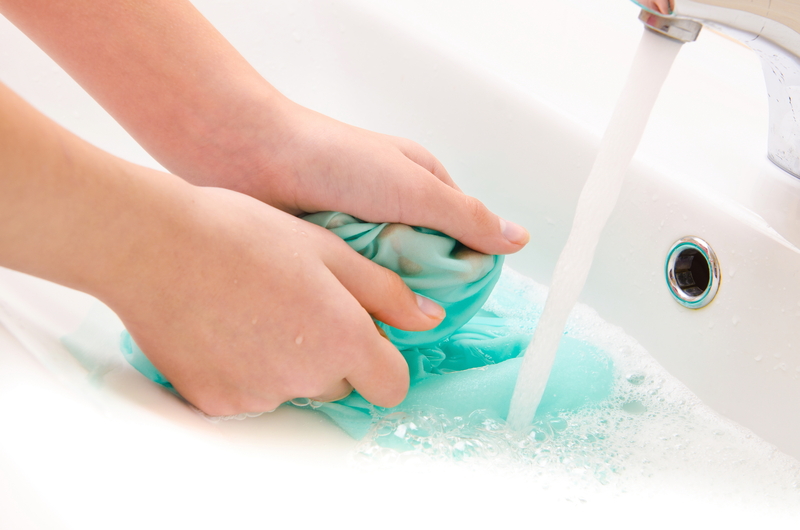Say Goodbye to Clutter: Stick to Your Cleaning Plan
Posted on 22/08/2025
Say Goodbye to Clutter: Stick to Your Cleaning Plan
Clutter has a way of creeping into our lives, piling up until surfaces disappear, drawers overflow, and homes feel chaotic instead of calm. If you've ever resolved to get organized only to find the mess creeping back, you're not alone. The good news? You can break the clutter cycle by committing to a manageable, effective cleaning routine. Discover the keys to a cleaner, tidier living space and finally say goodbye to clutter for good!
Why is Sticking to a Cleaning Plan So Important?
Understanding the vital role of a cleaning plan gives you the motivation to maintain it. Keeping your home organized is about more than appearances; it's about creating a healthier, less stressful environment. Here's why it matters:
- Healthier living environment: Clutter collects dust, allergens, and even germs that can affect your well-being.
- Less stress: Physical mess often contributes to mental clutter, making it harder to relax or focus.
- Increased productivity: An organized space encourages productivity and creativity.
- Time savings: When everything has a place, you spend less time searching or cleaning up in a hurry.
Sticking to your cleaning routine helps you reap these benefits--and more!

Assessing Your Clutter Situation
Before you create or adjust a cleaning strategy, you'll need to evaluate where clutter gathers and why. Ask yourself:
- Which rooms or areas always seem messy?
- What causes clutter to accumulate--lack of storage, rushed mornings, busy schedules?
- Do you tend to hold onto things you don't use?
By identifying your problem areas and the habits behind them, you're ready to set specific goals and tailor your approach.
Common Clutter Hotspots in the Home
- Entryways and mudrooms
- Kitchen counters and junk drawers
- Home offices and desktops
- Closets, especially if overstuffed
- Bathrooms and laundry rooms
When you recognize where and why clutter appears, you can plan your cleaning attack accordingly.
Crafting a Cleaning Plan That Works for You
The key to a clutter-free home is consistency. While sudden bursts of tidying can feel rewarding, they aren't sustainable. Instead, aim for regular, manageable routines that fit your lifestyle.
The Core Elements of a Good Cleaning Plan
- Specific cleaning tasks for each area (e.g., clear kitchen counters, put away laundry, file paperwork)
- Set frequency--daily, weekly, or monthly chores
- Assigned responsibility (especially helpful for households!)
- Checklists or reminders to help you stay on track
It's important to be realistic when designing your plan. If you only have 10 minutes a day, don't aim to clean the entire house daily. Instead, break tasks into small, achievable steps and prioritize high-traffic areas.
Sample Weekly Cleaning Plan to Combat Clutter
- Daily: Make beds, wash dishes, wipe down surfaces, toss clutter from high-traffic areas.
- Every other day: Tidy up bedrooms, clear kitchen counters, sweep/vacuum floors.
- Weekly: Clean out the fridge, organize one drawer or shelf, sort mail and paperwork, tackle laundry.
- Monthly: Declutter closets, deep clean bathrooms, review storage spaces.
Remember: Small, consistent efforts help avoid overwhelming deep-cleans later!
The Power of Decluttering: Make Space for What Matters
At the heart of any effective cleaning routine is decluttering. Decluttering isn't just about throwing things away; it's about intentionally choosing what stays in your space. Here's how to get started:
- Set a timer for 15-20 minutes. Focus on one drawer, shelf, or pile. Small sessions prevent burnout.
- Use the "four-box method": Label boxes or bins as Keep, Donate, Trash, and Relocate.
- Ask yourself if you've used each item in the past year. If not, it's probably time to let it go.
- Be honest about sentimental items. Keep what you love, but don't keep everything out of guilt or obligation.
A regular decluttering session--part of your overall cleaning plan--keeps your home organized and more enjoyable to live in.
Staying Motivated: Tips for Sticking to Your Cleaning and Decluttering Routine
Even with the best-laid plans, motivation can wane. How can you ensure that you stick to your cleaning plan for the long haul?
Accountability and Support
- Share your intentions: Tell a friend or family member about your goal to stick to your cleaning routine.
- Use checklists: Visually tracking progress is satisfying and motivating.
- Set reminders: Calendar alerts or sticky notes can help trigger routine cleaning habits.
- Reward yourself: After completing a week of sticking to your plan, treat yourself to a small reward.
Make It Manageable and Enjoyable
- Play your favorite music or podcast while you clean to make time pass faster.
- Break tasks into small chunks: Tackling tiny jobs prevents feeling overwhelmed.
- Set a timer and challenge yourself to beat the clock.
- Get the household involved: Assign age-appropriate chores to kids or divide and conquer with a partner.
Remember: Consistency beats perfection. Missing a day doesn't mean your plan has failed--just start again tomorrow!
Pro Organizing Strategies for a Clutter-Free Home
For many, it's not just about cleaning, but also about creating a space that's easily maintained. Try these tried-and-true strategies:
- The "One In, One Out" Rule: For every new item you bring home, donate or toss something similar.
- Maximize storage with baskets, drawer dividers, and shelves that make organization easy.
- Label storage bins and baskets so everyone knows where things belong.
- Designate a "clutter basket" in each room: At the end of the day, return stray items to their homes.
- Keep flat surfaces clear by only keeping daily essentials out--store everything else.
- Regularly review "stuff zones" like mail piles, shoes, and kids' toys to prevent accumulation.
Organizing as you go makes your cleaning plan more effective and less time-consuming overall.
How to Make Your Cleaning Plan Stick Long-Term
Sticking to your cleaning schedule can be challenging, especially as life gets busy. Here are some long-term strategies to make your plan part of your routine:
- Customize your plan seasonally: Adjust frequency and tasks as your needs change (e.g., spring cleaning, holiday prep).
- Re-evaluate goals each month: What's working well? What needs to be simplified?
- Celebrate small wins: Taking time to appreciate your progress helps sustain motivation.
- Be patient and kind to yourself: Real change takes time--progress is better than perfection.
- Consider professional help if needed: Home organizers or cleaning services can help jump-start your efforts if you feel overwhelmed.
Common Roadblocks--and How to Overcome Them
Knowing what might trip you up can help you stay on track. Here are some of the most common obstacles and how to handle them:
-
Lack of time:
- *Solution*: Break cleaning tasks into 5-10 minute mini-tasks throughout your day.
-
Feeling overwhelmed by clutter:
- *Solution*: Start small! Even tidying one shelf makes a difference and builds momentum.
-
Family or roommates not pitching in:
- *Solution*: Hold a meeting to assign specific tasks to everyone in the household.
-
Lack of motivation:
- *Solution*: Listen to music, set a timer, and give yourself rewards for sticking to your plan.
-
Sentimental attachments:
- *Solution*: Take photos of beloved items before donating them or box up and revisit in six months.
Preparing for challenges makes it easier to bounce back if your cleaning plan gets off track.

FAQs: Your Cleaning Plan and Decluttering Questions Answered
How often should I declutter?
Incorporate a small decluttering session into your weekly cleaning schedule. For larger areas, a monthly or seasonal approach works well.
What if I have too much stuff and don't know where to start?
Start small. Choose the easiest area--like a single drawer--and set a timer. Don't move on until you're finished! Progress is the goal, not perfection.
How do I organize kids' toys and supplies?
Use labeled bins, involve children in sorting, and keep only what fits in the storage. Encourage them to participate in daily cleanup.
Can minimalism help me stick to my cleaning plan?
Yes! Embracing minimalism--where you only keep what you need and love--makes cleaning quick, easy, and less stressful.
What if clutter is caused by emotional reasons?
Consider seeking support from loved ones or professionals. Decluttering can be emotional, especially if your possessions carry memories or represent difficult decisions.
Your Action Plan: Say Goodbye to Clutter, Once and For All
Ready to transform your home? Here's how you can finally stick to your cleaning plan and keep clutter at bay:
- Assess your main clutter spots and habits.
- Set realistic, manageable cleaning goals.
- Create a simple cleaning plan with daily, weekly, and monthly tasks.
- Declutter regularly--a little at a time.
- Involve your household and use reminders to stay consistent.
- Adjust your plan as needed and celebrate every bit of progress!
With these steps, say goodbye to clutter and hello to a cleaner, more peaceful home. By sticking to your cleaning plan, you're not just tidying your space--you're investing in your own wellbeing, productivity, and happiness. The journey to a clutter-free life begins with one small, consistent step. You've got this!



